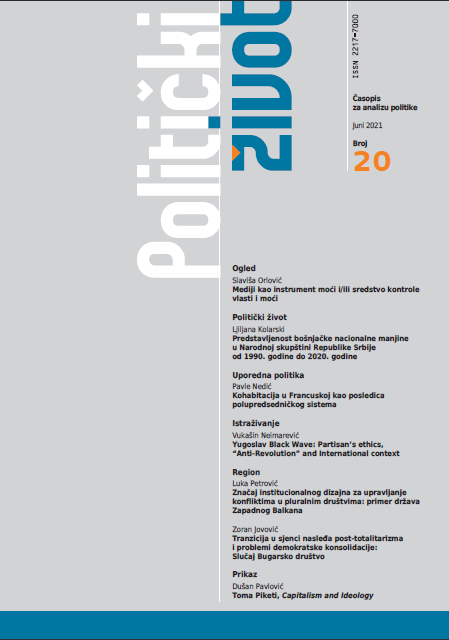Tranzicija u sjenci nasljeđa post–totalitarizma i problemi demokratske konsolidacije Slučaj: Bugarsko društvo
Transition in the shadow of heritage of post–totalitarism and the democratic consolidation problems Case: BULGARIAN SOCIETY
Author(s): Zoran JovovićSubject(s): Government/Political systems, Developing nations
Published by: Fakultet političkih nauka Univerziteta u Beogradu
Keywords: Political elite;political parties; democratic transition; party system; democratic consolidation; Bulgaria
Summary/Abstract: The democratic transition in Bulgarian society at the very beginning was a “paradox.” Because the existing ruling set did not allow ethnicity, that is, their politics, to prosper. The transition from the non-democratic to the democratic regime in Bulgaria, compared to other transitions in Eastern Europe (Poland, Czechoslovakia and Hungary), was transparent, but on the other hand, the process of democratic consolidation, which by its very nature was complex, was problematic and thus a long one. In accordance with the above, in the first part of the paper, we discuss the political elites in the process of democratic transition and consolidation, and in the second part we focus on the latter problem: the transition from non-democratic to democratic regime in Bulgaria. In conclusion, we indicate the key findings that have come over by considering this problem.
Journal: Politički život
- Issue Year: 2021
- Issue No: 20
- Page Range: 73-86
- Page Count: 14
- Language: Serbian, Montenegrine

